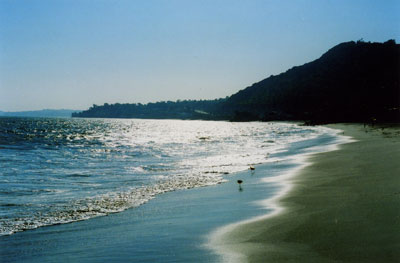All Nonfiction
- Bullying
- Books
- Academic
- Author Interviews
- Celebrity interviews
- College Articles
- College Essays
- Educator of the Year
- Heroes
- Interviews
- Memoir
- Personal Experience
- Sports
- Travel & Culture
All Opinions
- Bullying
- Current Events / Politics
- Discrimination
- Drugs / Alcohol / Smoking
- Entertainment / Celebrities
- Environment
- Love / Relationships
- Movies / Music / TV
- Pop Culture / Trends
- School / College
- Social Issues / Civics
- Spirituality / Religion
- Sports / Hobbies
All Hot Topics
- Bullying
- Community Service
- Environment
- Health
- Letters to the Editor
- Pride & Prejudice
- What Matters
- Back
Summer Guide
- Program Links
- Program Reviews
- Back
College Guide
- College Links
- College Reviews
- College Essays
- College Articles
- Back
Gulf Oil Spill Affecting Local Restaurants
Due to the recent oil spill in the Gulf of Mexico, by the British Petroleum company known as BP, local seafood restaurants are having to change more than the price of fish.
Restaurants like GoGo Sushi Grill and Express in Moore are having minor problems due to the oil spill. The prices of shrimp, especially gulf shrimp, have gone up since the incident.
Although restaurants such as the Moore sushi grill get a few questions about the safety of the seafood they serve, customers are still coming faithfully, employee Lisa Nguyen said.
Nguyen said they do get some of their seafood from the gulf but only from areas allowed to remain open.
"We only use fresh fish," said Nguyen, "most of it comes from sources outside the Gulf of Mexico."
Other stores like Homeland have stopped buying seafood from the gulf. According to Pam Lone, meat cutter at a Homeland store in Norman, the store has stopped receiving any seafood products from the Gulf of Mexico.
"There is a lot of shrimp that we normally carry that we are out of, [like] gulf shrimp," Lone said.
Lone said that they have not lost or gained customers due to oil spill publicity.
According to a federal Food and Drug Administration (FDA) spokeswoman, the FDA has just started testing for long term effects and it is too early to say if there is anything to be worried about.
"It's just premature to tell if the fish going as far as restaurants will be a problem or not- we just started testing," she said.
The spokeswoman confirmed that the FDA has not found any type of contamination in the seafood coming out of the gulf at this point. The main contaminated areas have been closed off from fishing.
These efforts do not seem to be enough to keep people from catching possibly infected fish. The Christian Science Monitor reported that a small “shrimping” boat was found leaving the gulf after catching fish in a restricted fishing area. Before the boat reached land, the Coast Guard stopped it and confiscated thousands of pounds of shrimp aboard the boat.
These sort of incidents have caused people to question the safety of seafood.
According to the FDA's website, the best way for avoid anything contaminated getting into the market is to close off the waters used for harvesting that are most infested with oil.
As for the protecting restaurants from buying and selling contaminated food, the FDA says:
"More than 3,000 state, local and tribal agencies have primary responsibility to regulate the retail food and foodservice industries in the United States. They are responsible for the inspection and oversight of over 1 million food establishments - restaurants and grocery stores, as well as vending machines, cafeterias, and other outlets in health-care facilities, schools, and correctional facilities."
Dr. Peter Muriana, a food microbiologists at Oklahoma State University , has similar beliefs on the safety of the seafood out in the market now. He said the consumer might be able to tell infected fish because infected fish, be looking to see if it is slimy, smelling and has a bad taste.
There are still those, like Dr. Anna Cruse, who doubt the actually safety of the fish and seafood on the market.
Cruse is an assistant professor in the geology department at OSU. Her specialty is sedimentary geochemistry, organic geochemistry, and oceanography.
Cruse believes that there is a certain risk involved in eating seafood now and also for generations to come. She believes that there is no way for a consumer to know if the seafood they have just been served is contaminated with crude oil or not.
“That’s the problem. There is no way to tell if, it doesn’t taste any different, it doesn’t smell feel, smell, or even look any different to us [the normal consumer]. Unfortunately we would probably enjoy it, eat it and think it tasted good. "
Cruse has her own theory on what will happen in the future. Sea organisms at the bottom of the food chain will be contaminated first. And as fish get eaten and the contamination works its way up the food chain it will be easier for consumers to get affected.
She believes the possible effects from eating contaminated seafood would be major (caner) but not seen until 10-15years after consumption.

Similar Articles
JOIN THE DISCUSSION
This article has 1 comment.